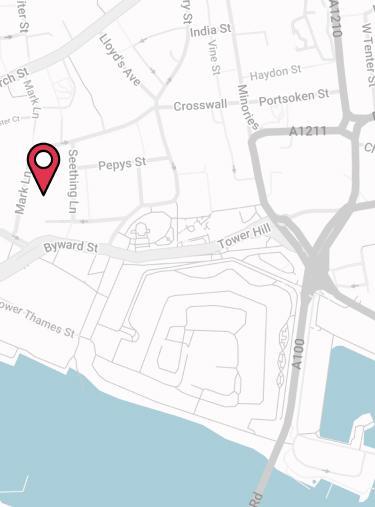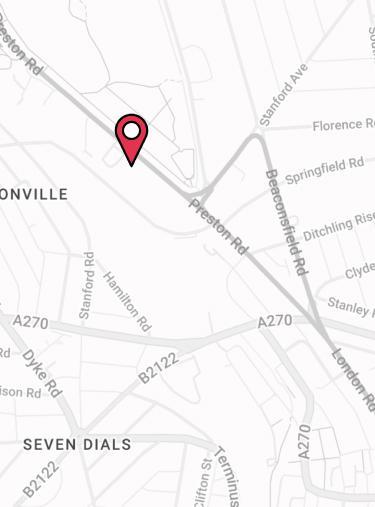No one likes to imagine facing a serious illness, but having a plan can make all the difference when life takes an unexpected turn. Critical illness cover is a way to protect yourself and your family financially if you’re diagnosed with a major health condition. Here’s a clear breakdown to help you decide if it’s right for you.
What Is Critical Illness Insurance?
Critical illness cover (also called critical illness insurance) is a type of protection policy that pays a tax-free lump sum if you’re diagnosed with a serious illness or medical condition listed in your plan.
Unlike Life Insurance, which pays out when you pass away, critical illness cover is designed to support you while you’re alive and recovering. It gives you the financial breathing room to focus on your health, without worrying about bills or mortgage payments.
5 Minute Video Guide To Critical Illness Cover In The UK
Don’t have enough time to read this guide, but want a quick specialist run down of Critical Illness Cover? Our very own Alex Weir, is here to explain what it is and all you need to know before taking out a policy. Just press play! 👇
How Does Critical Illness Insurance Work?
When you take out critical illness insurance, you’re putting a financial safety net in place should the unexpected happen. The policy is structured to give you certainty: you know how much you’re covered for, what it will cost you each month, and under what circumstances it will pay out.
Here’s how it works in practice:
- Choose your level of cover
Decide how much protection you need – for example, £50,000, £100,000 or more. Many people align this with their mortgage balance or a few years of household income
- Pay monthly premiums
Your insurer sets your premium based on factors such as age, health, lifestyle, and the cover amount. Payments are usually fixed, so you know exactly what’s leaving your account each month
- Make a claim if diagnosed
If you’re diagnosed with a condition listed in your policy, such as cancer, a stroke, or a heart attack, you can submit a claim. Once approved, the insurer pays the agreed lump sum directly to you.
- Policy ends once paid
After the lump sum is paid, the policy closes. If you need cover beyond this, you’ll need to take out a new plan.
Example In Action
Suppose you set up £100,000 of critical illness cover. If you were to suffer a heart attack that meets your insurer’s definition, you’d receive the full £100,000, tax-free. This could clear your mortgage, cover treatment costs, or give your family the financial space to cope while you recover.
Survival and Claims Notification Periods
Another thing to be aware of are survival periods and claims notification. After you’re diagnosed with a covered condition, most insurers ask you to survive for a short ‘Survival Period’, usually 10 to 14 days, before your payout is approved. It’s a detail that might seem small, but it’s crucial for making sure the policy delivers support when it’s needed most.
And when it comes to making a claim, speed matters. Some providers give you a set window, like 13 weeks, while others simply urge you to get in touch as soon as possible. Acting promptly isn’t just a box to tick, it’s the key to unlocking your financial lifeline right when you need it. So, if life throws you a curveball, remember: knowing these steps means you can focus on recovery, not paperwork.
What Does Critical Illness Insurance Cover?
One of the first questions people ask is: “What exactly does this policy cover?”
Critical Illness Insurance is designed to pay out if you’re diagnosed with a serious medical condition listed in your policy. Each insurer defines the conditions slightly differently, so it’s always important to check the details. That said, most providers follow similar standards and cover a wide range of life-changing illnesses.
The Big Three
Across the UK insurance market, the three most common critical illness claims are for:
- Cancer
- Heart attacks
- Strokes.
Together, these account for the majority of successful payouts, meaning your policy is most likely to provide protection in precisely the areas people worry about most.
Other Conditions Typically Covered
While cancer, heart attack, and stroke dominate, most policies also cover a wide list of serious conditions such as:
- Multiple sclerosis (MS)
- Parkinson’s disease
- Alzheimer’s disease and other severe forms of dementia
- Motor neurone disease (MND)
- Kidney failure
- Major organ transplant
- Coronary artery bypass surgery
- Loss of limbs or loss of independent living ability
- Total permanent disability (sometimes included as standard, sometimes as an optional extra).
Children’s Critical Illness Cover
Some insurers include some form of children’s critical illness cover at no extra cost or provide it as an additional add on for an extra cost. This means you could receive a payout if your child is diagnosed with one of the listed conditions, helping you take time off work or cover treatment costs during a difficult period.
What’s Not Covered?
Equally important is what isn’t covered. Critical illness cover is not a blanket protection for all illnesses. For example:
- Pre-existing conditions are usually excluded
- Less severe or early-stage conditions may not trigger a payout.
- Conditions outside the policy’s medical definition, for instance, a mild heart attack or early-stage cancer might not meet the insurer’s criteria and therefore would not be covered.
How Much Critical Illness Do I Need?
There isn’t a one-size-fits-all answer, the right level of cover depends entirely on your circumstances and what you want the payout to achieve. The key is to think about the financial commitments you’d still face if you were too unwell to work. Things to consider include:
- Mortgage or Rent
For most people, housing is the single biggest expense. Many choose a cover amount that matches their outstanding mortgage or at least several years of rent, ensuring their family can stay in the home if they can’t work
- Dependants
If you have children, a partner, or relatives who rely on your income, you’ll want enough cover to maintain their quality of life. That might include school fees, childcare, or simply keeping the household running
- Everyday Living Costs
From utility bills and groceries to transport and subscriptions, everyday expenses quickly add up. Think about how long you’d want the payout to support these costs
- Existing Protection
Consider any life insurance, income protection, or savings you already have. Critical illness cover is designed to work alongside other policies, not replace them.
A Useful Rule of Thumb
Many advisers suggest aiming for enough cover to clear your debts and provide at least two to five years of income replacement. This gives your family financial breathing space while you recover or adapt to a new lifestyle.
EXPERT TIP 🤓
You’ll also have to consider Critical Illness Cover underwriting limits when you’re insuring yourself. These are thresholds which, once you cross, the insurer will require further medical evidence such as a GP Report, bloods or a full medical before your policy can be accepted.
Do I Need Critical Illness Cover?
If you develop a critical illness, this insurance policy is designed to pay out a lump sum.
You can use it to repay a mortgage, keep up with the bills or adapt your home to suit a new disability – however you use it, the cash can prove a hugely valuable lifeline.
Unfortunately, no one can ever be sure what life has in store for them. A serious illness could strike at any time. Statistics show the risk of many critical illnesses is rising in the UK, even among younger people of working age.
Major Illnesses: The Statistics
- Around 1 in 4 new cancer cases diagnosed every year are among people aged under 60 (Cancer Research UK)
- 50% of people born after 1960 will be diagnosed with cancer at some point in their lifetime (Cancer Research UK)
- More than 900,000 people in the UK have survived a heart attack (British Heart Foundation)
- Of the 982,000 people who currently have dementia in the UK, more than 40,000 are under 65 (Alzheimer’s Society)
- There are 277,000 people registered as blind in the UK (Royal National Institute of the Blind)
- There are 107,800 people living in the UK with MS and more than 5,000 people were diagnosed with the condition in 2016. Almost two-thirds of people currently living with multiple sclerosis are under 60, while over three-quarters of new diagnoses in 2016 were among the under 60s (Multiple Sclerosis Society).
Not every incidence of one of these illnesses will be covered by Critical Illness Cover. Less severe forms of conditions such as cancer or heart attack may not be included in the wording of your policy, so it’s important to check definitions carefully.
How Much Does Critical Illness Insurance Cost?
The cost of Critical Illness Cover will depend on a number of factors, including:
- Your age
The older we are, the higher the risk of us suffering from a critical illness
- Your state of health
Your current state of health, including your height and weight and whether you’re a smoker, will all be considered when working out the cost of Critical Illness Insurance
- Medical history
As well as your current state of health, insurers will look back into your medical history to see if you’ve suffered a from an illness in the past. If so, the insurer may choose to load the baseline premium to reflect your higher degree of risk or decline to insure certain conditions on the policy.
Your Policy Options
There are a number of options for you to consider to make sure the policy works for you and your needs.
Decreasing or level cover?
- Level Term
The benefit stays fixed over time, so the policy will pay out the same amount in the first year as in the last
- Decreasing Term
The benefit falls over time, reaching zero by the end of the policy, therefore making this cover the cheaper of the two.
Level term critical illness cover is often used where the policy is to cover an interest-only mortgage, where the capital value of the loan doesn’t diminish over time.
Also, level policies are used to ensure you and your loved ones will always receive the full benefit from the policy, no matter when you develop the critical illness.
Decreasing critical illness insurance is often used to cover a straightforward repayment mortgage, where the mortgage balance falls over time.
As the benefit falls over time even as you age and the risk of you claiming increases, decreasing cover is cheaper than level cover.
Guaranteed or reviewable premiums?
- Guaranteed premiums will remain fixed for the life of the policy, unless you’ve opted to index-link the cover so that it keeps pace with inflation.
- With reviewable premiums, the insurer has the discretion to increase the amount you pay for Critical Illness Cover on a regular basis. This could see significant increases in premiums on an annual basis.
Single or joint cover?
Just as you can take out Joint Life Insurance, you can take out Joint Critical Illness Cover. This will cover two people for the risk of serious illnesses under one policy.
It’s usually slightly cheaper than buying two separate individual policies but may not always be the best option in the long run. Just as with life cover, the policy will only pay out once on the first instance of critical illness, potentially leaving the healthy partner without any cover.
If budget is available it can worth considering taking out two individual policies while you are both young, fit and healthy.
Number of critical illnesses covered
Always check not only the number of critical illnesses covered – the average is around 40 but this can be as few as 10 or extend to over 120 – but also the definitions surrounding those illnesses.
Look for clear, robust definitions of the serious illnesses covered by your insurance plan to enhance your likelihood of being able to claim.
Example Premiums
To give you a realistic idea, we’ve shown example premiums for both a 30-year-old and a 40-year-old taking out:
- £250,000 of life insurance
- £100,000 of critical illness cover
- Over a 25-year term, for both level and decreasing cover
- With rates shown for smokers and non-smokers.
Why Have We Included Life Insurance As Well?
Many people choose to combine life insurance with critical illness cover in a single policy. This option is often more cost-effective than buying two separate policies, and it ensures your family is financially protected whether you’re diagnosed with a serious illness or pass away during the policy term. By linking the two types of cover, you get comprehensive protection at a more affordable price.
As you can see, the cost of critical illness insurance varies depending on your age, health, and the type of cover you choose. While it might be tempting to focus solely on the monthly premium, remember that a slightly higher cost can mean broader cover or a better chance of a successful claim when you need it most.
Ultimately, finding the right balance between affordability and comprehensive protection is key, think about what you need the cover to achieve and choose a policy that gives you peace of mind without stretching your budget.
It’s always best to speak with a specialist, such as one of the team at Drewberry, who can help tailor a solution to your needs and guide you through the options with expert advice. Pop us a call on 02084327333 or email help@drewberry.co.uk.
What illnesses are covered by Critical Illness Insurance?
A range of illnesses are covered by Critical Illness Cover. However, how many that will be covered depends on the policy.
There are policies that cover 10 or fewer critical illnesses and those which cover more than 100, although the average number covered is between 30 and 40. It’s therefore important to research the market and get the best deal for you.
The ‘big three’ illnesses covered are cancer, heart attack and stroke. These make up by far the majority of all Critical Illness Insurance claims.
Other common illnesses covered include:
- Multiple sclerosis
- Parkinson’s disease
- HIV infection
- Benign brain tumour
- Heart valve replacement / repair
- Bacterial meningitis
- Permanent, irreversible blindness / deafness.
What qualifies as a Critical Illness?
What qualifies as a critical illness under Critical Illness Insurance depends on the exact wording of the policy. Some policies have more robust definitions of critical illnesses than others and so could be easier to make a claim on than others.
People often get hung up on the number of critical illnesses covered without considering the definitions of those illnesses. It’s the definitions that are much more important as these determine how likely you are to be able to claim under a particular illness.
What's the difference between Critical Illness and Terminal Illness?
Terminal Illness Insurance comes as a free rider on most Life Insurance policies. Given that most Critical Illness Cover is sold alongside Life Insurance, it’s often an option on Critical Illness Cover as well.
Terminal Illness Insurance is a clause in the policy that allows for it to pay out early should you be diagnosed as terminally ill (with less than 12 months to live). This allows for you to be financially secure so you don’t have to worry about money at such as difficult time.
Critical Illness Cover, on the other hand, is designed to pay out for the critical illnesses specified in the policy subject to the policy wording. The illness doesn’t have to be terminal for a payout under Critical Illness Cover — it’s possible to receive a critical illness payout and then recover fully.
Do you pay tax on a Critical Illness Insurance payout?
No, there’s not typically tax due on a personal Critical Illness Insurance payout. This is because the premiums are paid from income after tax has been deducted (i.e. your wages) and so the policy has already effectively been taxed once.
Compare UK’s Best Critical Illness Insurance Providers?
There are a number of factors to consider when you’re looking for the best Critical Illness Cover. An obvious place to start is the insurer’s reputation and how good they are at paying claims.
In 2024, the top UK insurers all paid out on at least 87.9% of critical illness claims they received, a fact which reassures many people.
When searching for the best Critical Illness policy, you’ll also want to check:
- How many critical illnesses are covered by your policy?
- Will the insurer will pay out for early stage and minor conditions?
- Does the policy have ABI or ABI+ definitions for illnesses?
- How clear is the policy wording?
- How long the required survival period is
- How long the claims notification period is.
Key Features of Leading UK Critical Illness Insurance Providers
Below you’ll find a comparison of the main features offered by some of the UK’s top critical illness insurance providers. This table highlights the key details, such as maximum cover amounts, age limits, survival periods, and children’s benefits, so you can easily see how each insurer stacks up.
Is Income Protection Better Than Critical Illness Insurance?
Choosing between Income Protection and Critical Illness Insurance isn’t always straightforward, they each have their strengths, and the right fit depends on your personal circumstances.
Think of Income Protection as a steady replacement for your monthly paycheque. If illness or injury stops you from working, it keeps the bills paid by providing a regular income, often right up to retirement if you need it. You can make multiple claims over the life of the policy, and the benefit is tied to your earnings, so your lifestyle is protected.
Critical Illness Insurance, on the other hand, is designed to give you a financial safety net if you’re diagnosed with a serious medical condition. It pays out a lump sum, which can be used to clear debts, cover treatment costs, or adapt your home. But it only pays once per policy, and the payout depends on the specific illnesses listed in your plan.
Here’s a quick comparison to help you decide:
Get Critical Illness Insurance Quotes & Specialist Advice
When it comes to matters as important as your health and your family’s financial future, it’s no surprise that everyone wants to get it right.
We’ve got all the tools and the know-how to help you find the best Critical Illness Insurance for you and your family so you know you’re covered should the worst happen.
Why Speak to Us?
When it comes to protecting yourself and your finances, you deserve first-class service. Here’s why you should talk to us:
- There’s no fee for our service
- We’re an award-winning independent insurance broker, working with the leading UK insurers
- You’ll speak to a dedicated specialist from start to finish
- 4100 and growing independent client reviews rating us at 4.92 / 5
- Claims support when you need it most
- We’re authorised and regulated by the Financial Conduct Authority. Find us on the financial services register.














